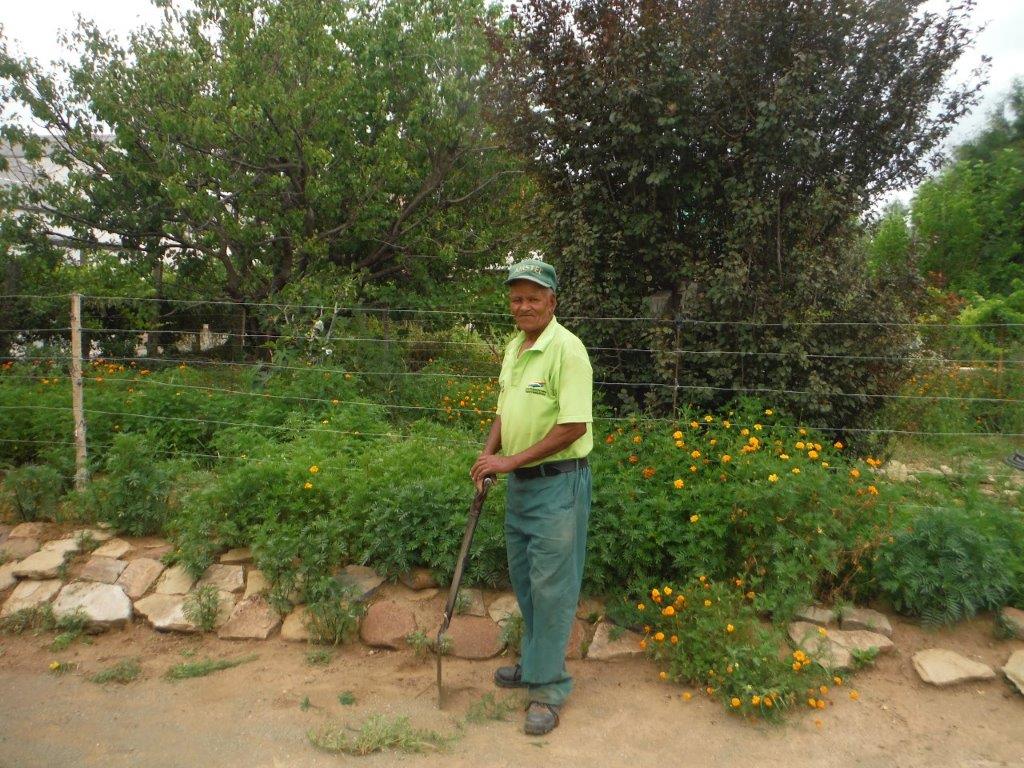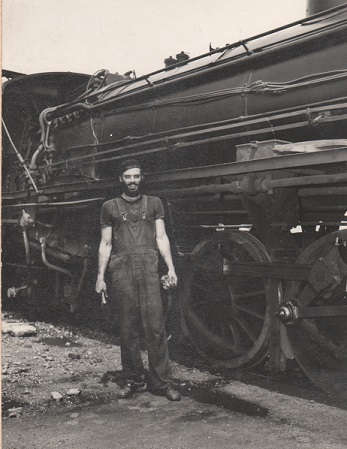FARMERS
Maeder Osler
Lesley Osler
Nicholas Allens
Jasper Cook
Dawid Allens
MAEDER OSLER
Q & A with Maeder Osler
You have been in politics, journalism, education. sport and music. What was your start in Politics?
By way of student affairs at Pietermaritzburg, for a long start … Still is a long and challenging haul …
You are from a world famous sporting family. Tell us about your rugby days
To be completed …
How do you see rugby these (professional rugby) days, compared with your playing days?
To be completed …
How did you become involved with teaching?
By inclination and training, then fulfilments all over the place! Enriching to still be with so many learners …
How did you come to be a farmer?
Dream of restoring a family farm … became a long and interesting road, with many twists and turns … and still is …
What are your major influences in farming?
Neil Tainton’s Natal University book Veld Management in South Africa, is probably first prize for me.
Then there are a host of other researchers in veld, environment and land affairs that I honour and respect very highly. Among these are chiefly Drs Sue Milton and Richard Deane of Renu Karoo
Dr Cherryl Walker and the teams of researchers around Stellenbosch University. Dr William Beinart of Oxford University. And much work done through all the universities of South Africa. In general I admire the work done by many government departments and in the United Nations agencies.
I am much and widely influenced by many Hanglip associates – they know who they are. Jasper Cook is an inspiration for me. So are John Seymour of The New Complete Book of Self-Sufficiency, Masanobu Fukuoka of One Straw Revolution and Dr EF Schumacher of Small Is Beautiful: A Study of Economics As If People Mattered. And many more people in the communities of Colesberg, and beyond … Not least of my wife Lesley Osler, and our four children Mark, Miles, Kath, Ken.
And….
Music: what was Ginger’s Fault?
Well, it started like this …
LESLEY OSLER
Q & A with Lesley Osler
Lesley co-founded Hantam Community Education Trust.
See HCET in the Navigation Bar.
NICHOLAS ALLENS
Q & A with Nicholas Allens

Here is Nicholas Allens, at the Hanglip homestead entrance. Behind him are a few of his very many yellow and red marigold plants. He brought some seed from Worcester, and every year he cultivates more spreads of beauty. Worcester is also where Nicholas retired from to come live here.
Tell us a little about your family
We were eight children. Five daughters, three sons. I am the youngest. There are 3 of us left – my two sisters, and myself. My sisters still live near Worcester, the one at Robertson and the other at Klapmuts. They visit me here, when they can.
Where were you born?
I was born here on neighbour Grootfontein farm. We lived where the Hantam Trust schools are now. I remember our small stone house. We had an earth and reed roof. It never leaked. We used to get water from the Grootfontein fountain nearby, lovely sweet clean water. They even used the water to fill batteries in those days.
My parents were Willem Allens (born Steynsburg 1912) and Dinah (Moses) Allens.
Where did you get your love for and skills in gardening?
When I was 7 or 8 years I started my first garden, only beans. We ate a lot of lovely fresh beans.
We used to swim in a dam where the school grounds now are. And there was a land there called Rooiland. We used to cut oats with sickles, and make sheaves for food, for the horses and stud sheep. The land was surrounded by willows and there were very many water birds like bleshoenders. There was a school, which went to standard 4. Jack Southey was one of three managers. The owner was Jim Bailey, uncle of neighbour Will Bailey of Poortjie farm.
Jim Bailey also had this special way of walking. In his long walks, I often saw him stepping right over fences and gates …
JASPER COOK
Q & A with Jasper Cook
How do you know Maeder Osler?
We go back to early 60s. Shortly before Maeder became NUSAS President, he was a regular guest at our house in Scotsville, Pietermaritzburg, two short blocks down from the UNP campus. Other regular guests from or related to UNP were Hugh & Liz Lewin, John Lloyd, Caroline White, HWD “Cake” Manson, Cathy Shallis (now Brubeck), Michael and Lettie Gardiner. It’s a long list! Maeder is closer in age to my late brother, Al Cook, and for a time shared a flat with John Lloyd, who I regarded as my best friend later.
Have you remained in contact since those days?
No. I exiled myself to England from 1967 through Jan 1971, and Maeder was in touch with my sister Colleen, and her husband Mike Taylor, while Mike studied Archaelogy at UCT. I remained in touch via Colleen.
Did you see one another sporadically over the years, or not at all until recently?
When Maeder started Toverberg Indaba, Colleen (who loved a road trip) and I (who love a train trip) would sometimes head down from Johannesburg to type-set the paper. We used WordPerfect 5.1 in those days (the 80s). Both of us were greatly impressed with Maeder’s courage and innovation starting a tri-lingual newspaper in Colesberg, and wanted to do our bit. It was impressive enough to just start a newspaper, let alone a liberal one, and in three languages!
Why here, the Great Karoo?
My grandfather, Clarence Every, farmed on “Vinkelfontein”, midway between Noupoort, Middelburg, and Hanover. From before I can even remember, we boarded the train every Christmas, to spend the holidays on that farm for some years, and then later on my uncle Dirk Viljoen’s farm “Slaaifontein” not far away, west of the same triple-platberg towering over Vinkelfontein.
My dad was a civil servant. We did not have a car. So he used his civil servant train concession every year. All four of us siblings longed far more for the Karoo than for PMB and the midlands of then Natal. It’s a matter of where the heart is.
You’re a musician. What about farming?
I was never only a musician. After dropping out of UNP Fine Arts, I started my working life out as a stoker on steam locomotives in Empangeni, in then Zululand.

After that, I exiled myself to England where I worked as a labourer for four years. It was only when the Special Branch set about a process that got me fired (for being an “agitator”) from my job (which I happily thought would be my lifelong career) as a shipping Warehouse Administative Manager in Durban in 1973, that I was forced to take up music full time. I had not regarded myself as good enough, but in the end, I made the cut!
I’ve “suffered”, if you like, all my life from “urban/rural” conflict, and … rural won! Partly because, as we’ve all seen, farming has changed so much through the years.
You say farming has changed?
I am influenced by the memory of my grandfather’s farm. It was the smallest farm in the district. He was warned that he would not scratch a living from it. In the end, he did well enough, because he had the energy and the nous to run a “farm within a farm”.
He kept Jersey and Guernsey milkers, a bit unknown for the Karoo in those days, and grew lucerne to feed them, also baled it for dry times, built a huge dam to irrigate the lucerne. He sold cream to the Queenstown dairy, skimmed milk was fed to the pigs, a litter of which he grew out and sold yearly, and chickens followed the cows and pigs, providing eggs and meat. Springbok culling also provided meat. The cream and pigs paid most of the bills, and he needed very little from town.
He couldn’t do this today: dropping cream cans with a laaimeester at Noupoort, whom he knew and relied upon to consign it correctly, does not happen today. Rail doesn’t serve farmers today, except to carry some machinery and maybe grain, sometimes. It all went onto our roads.
My grandfather’s farm was the twenty-seventh farm bought by a wealthy farmer back in the day, and that has become the trend. If you want to earn more, you buy more farms!
What is your greatest achievement?
Nothing tops my children. They are all great inspirations to me. They all made good and happy lives for themselves. How many people do that?
A few other things stand out:
-
Performing with the African Jazz Pioneers at the inauguration of President Nelson Mandela in 1994, and eight happy years with that band in all.
-
A database for labour lawyers resulting in reinstatement of 14000 workers fired by SATS (South African Transport Services), in the 80s. Of those 14000, 3000 had families that were turfed out of their homes when fired. Reinstatement meant they were no longer homeless. This was me wearing another hat: my IT hat.
-
Performing with the African Jazz Pioneers before 300 thousand people in Rome on Workers Day, 1993. The largest crowd I saw before then was 250 thouasand at the Rolling Stones Free Concert in Hyde Park
-
recording on three albums with Hugh Masekela, five with the African Jazz Pioneers, 19 albums in South Africa in all
-
Happiest live music event (there so many) was performing in the Jonas Gwangwa Orchestra in the Civic Theatre in Johannesburg
-
four very happy years with Dennis Mpali’s band
-
“suit” jobs … It goes without saying that I, declared from early life as an “outy”, was never going to be big on corporate stuff: corporates, to the last one, went along with apartheid, and that didn’t wash for me. However, I ended my working life happily in a small but great IT firm, Khanyisa Real Systems until retirement. If KRS were big on “suits”, this would have been my happiest “suit” job, but KRS are delightfully more interested in how you think rather than how you look. Those three years somehow feel like an achievement, almost like “all is forgiven, Jasper”!
Looking back, I hear the words of Slim Callaghan, one of whodunit author Peter Cheney’s characters:
*“We get there, and who the hell cares how!”
DAWID ALLENS
Q & A with Dawid Allens
(Coming soon)